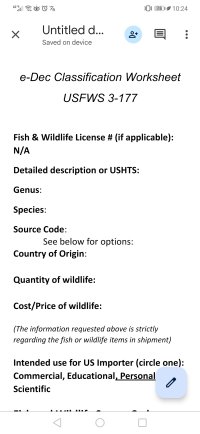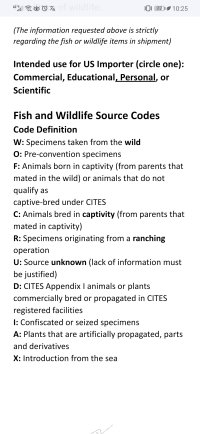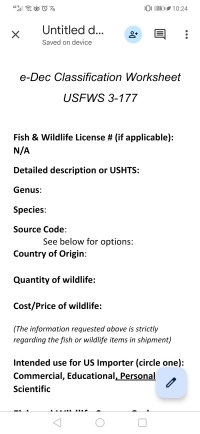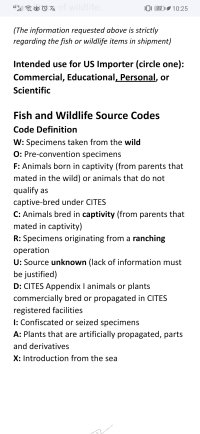My experience in making copies of my CITES (and receipts) are based on the advice of my store director, as well as research/analysis of the CITES text and information provided at national/regional levels (Australia, Japan, and the EU). You may want to do the same as you may be interested to bring your exotic items to different countries. While CITES is an international law, the enforcement is at national level, and this may be stricter than what is provided for in CITES (see my later comment on China and New Zealand).
Some key points that I want to highlight (sorry for this long post):
All my exotic-related purchases have been in the crocodile/alligator family – which has been included in Appendix II of the CITES (this is also mentioned in the certificates/permits provided by the stores, both in France and my home country). You may want to check the categories for other exotics such as lizards as these could be in other Appendices (I or III) – if so, different rules may apply. The lists/Appendices are regularly updated.
Relevant provisions in CITIES should be Article II: Fundamental Principles; Article IV: Regulation of Trade in Specimens of Species included in Appendix II; Article VI: Permits and Certificates; Article VII: Exemptions and Other Special Provisions Relating to Trade (
https://cites.org/eng/disc/text.php#II). Other relevant provisions are the Control of trade in personal and household effects (
https://cites.org/eng/res/13/13-07.php)
CITES and the respective national authorities differentiate the purpose of the items to be imported into the country – commercial or personal use/household effects – see relevant provisions above. Article IV: Permits and Certificates of CITES does provide period of validity for the permits and certificates (6 months) but this matters for commercial purposes only. And so, CITES provided to my home country store (original importer) indicates the validity period but that is because the item is imported for commercial purposes. The permit/certificate is only valid to the original importer. The concern would be if you purchased the item via a reseller or if you are a reseller wanting to sell the item – you may probably have to apply for a new certificate/permit – please check with your respective national authorities if you are in this category.
As for me, once I purchased the exotic item, it becomes a personal and household effect to me. Indeed, the CITES certificate provided by the Sevres Hermes Store treats me as such (there is a difference between the CITIES certificate provided in France and other countries because for France, it is the country of last re-export). However, if I decide to sell the item in the future, I will probably have to apply for a new CITES certificate/permit because then it will be a commercial transaction.
Most countries exempt import permits for exotic items that are personal effects – the countries that I know that are still quite strict are China and New Zealand (that is, you need import permits even for exotic items that are personal effects). For Australia, I do not have to apply for an import permit when I bring my alligator/croc H bags into the country (my usual place of residence is in Asia but I also have home in Australia) – but I bring with me copies of the CITIES certificates/permits and receipts (to show that I purchased the items directly from the stores in France and my home country). Australia provides clear guidance, see:
https://www.dcceew.gov.au/environment/wildlife-trade/do-i-need-permit
Also, most countries based any quotas on the provisions in CITES – e.g. for crocodile/alligator items, tourists are restricted to bring in only 4 items. As an example, I provide the link to the Japanese national authority in charge of enforcing CITES:
https://www.meti.go.jp/english/policy/external_economy/CITES/exemptions.html
I hope my long explanation here helps – I am not a CITES expert, just someone who has done international trade law and negotiations before! Most important, please check with the relevant national authorities for your ease of mind in bringing your exotic babies when you travel. The CITES website is very useful in providing details of these authorities (dry reading but fascinating facts galore).





